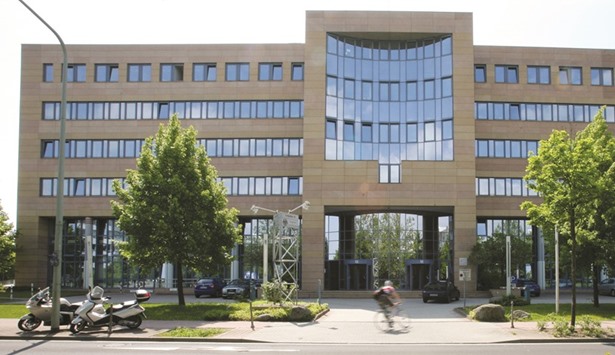Germany and Switzerland are the latest European nations to institutionalise and expand Islamic finance within their banking and insurance system, providing more Shariah-compliant services to their domestic Muslim communities and offering extended Islamic banking services for investors as an alternative to conventional finance.
One year after the first full-fledged Islamic bank opened in Germany — KT Bank, owned by Kuveyt Turk, the largest Islamic bank in Turkey —, the German Federal Financial Supervisory Authority has now outlined its plans to set up a regulatory framework for Islamic finance to push growth in the sector.
Peter Kruschel, director of banking supervision at the supervisory authority, said at the Global Islamic Finance Forum recently held in Kuala Lumpur that the German financial industry “is well aware of the potential of the Islamic banking sector” which brings with it the need to think about the introduction of a regulatory framework for the sector to support transactions in compliance with Islamic principles. He added Germany’s non-Muslim population may also be interested in products offered by Islamic banks, and that respective tax and central bank policies will need to be put in place to assist in the development of the industry.
“There is huge potential for this kind of industry,” said Kruschel, “also because we have a large number of immigrants from Muslim countries at the moment. But we currently have no Islamic banking regulation at all, thus we need to find out what needs to be implemented and changed in order to support this industry in Germany.”
He added that a lot of people in Germany see Islamic banking from the business perspective rather than from the “ideologic” point of view.
KT Bank, on its part, presented a poll that among the 4.5mn Muslims residing in Germany; 21% were ready to use the services of an Islamic bank. The services and products of the bank have not just been developed for Muslims, but the entire German banking market, according to KT Bank CEO Kemal Ozan, which would reflect the strategy of Istanbul-based Kuveyt Turk bank and its owner, Kuwait Finance House.
“We have established a previously unknown business model in this region,” said Ozan, adding that previously just 5% of Germany’s Muslim population adhered to Islamic banking owing to non-existent services. This means, a huge growth in the Islamic finance sector can be anticipated, not just from retail clients, but also from the solid trade and business exchange between Germany and the Gulf region, as well as investment activities, for which Islamic banking can serve as a bridge.
In Switzerland, Islamic finance had already been in the focus of attention after the 2008 financial crisis, and the two biggest banks UBS Group and Credit Suisse launched Islamic windows at that time for the large influx of money from Muslim clients who wanted to invest their money according to Islamic law. However, the boom slowed down in the following years, and Islamic products and services in Switzerland were mostly dropped by the big domestic banks in 2013.
But meanwhile, Switzerland has rediscovered its interest in Shariah-compliant finance, this time by setting sight on the Islamic insurance sector. Last week, Zurich Insurance Company, part of Switzerland largest insurer Zurich Insurance Group, announced that it bought Malaysia-based MAA Takaful to expand its insurance and takaful business in Malaysia and to generally complement its existing insurance solutions, spanning from life insurance and general insurance to family takaful and general takaful.
With the move, Zurich Insurance joins Swiss Re, the world’s second-largest reinsurer, which is active in the retakaful business in Asia-Pacific through its office in Kuala Lumpur.

A cyclist passes the German financial regulator BaFin building in Frankfurt. The German Federal Financial Supervisory Authority has outlined its plans to set up a regulatory framework for Islamic finance to push growth in the sector.
